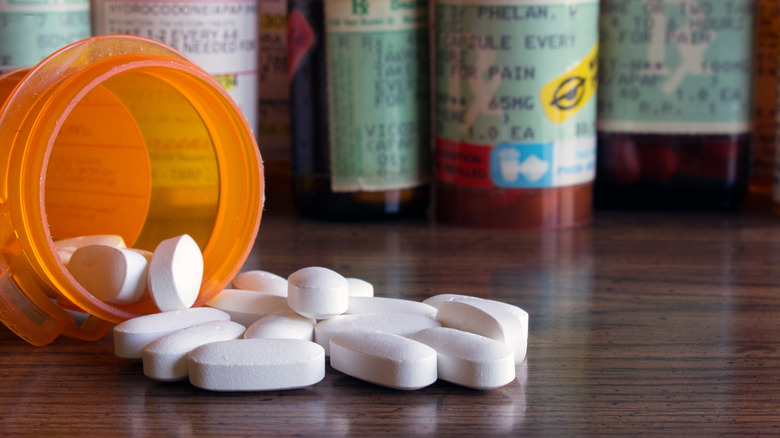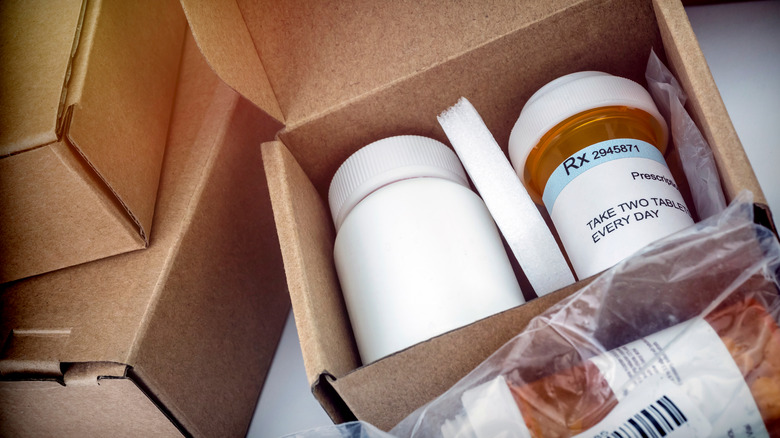How Researchers Are Getting Patients To Properly Dispose Of Unused Opioids
It's no secret that the opioid epidemic is ravaging the lives of so many Americans right now. Since the late 1990s, opioid use has been steadily growing, leading to severe addiction and loss of life (via National Institute on Drug Abuse). For the 12-month period ending in April 2021, the CDC found that over 100,000 Americans died from drug overdoses, making it the deadliest year of America's drug epidemic yet (via CNN). That's a nearly 30% increase from the previous year, with Drug Enforcement Administration Administrator Anne Milgram calling it "a national crisis." And the driving cause of our national crisis? Opioids.
While deaths from prescription pain medications didn't increase nearly as much as deaths from synthetic opioids like fentanyl, they still saw increases (via CNN). Some states are trying to crack down on doctors over-prescribing opioids for managing pain, according to Vox. For example, 10 states in the U.S. have laws in place that limit opioid prescriptions to seven days or less. And a recent study may have identified a proven way to minimize patients' risk of developing a dependency on the drugs they're prescribed.
A simple way to dispose of unused prescription opioids
A new study published in JAMA Network Open found that patients recovering from procedures who were given ready-to-use mailed disposal kits for their unused prescription drugs were more likely to dispose of unused excess medication properly. Researchers from the University of Pennsylvania studied 235 participants who were prescribed opioid painkillers after their procedures. Half the patients were texted instructions on safely disposing of unused medication with links to local safe disposal sites. The other half received the same message, but were also mailed disposal kits four to seven days after their procedures. Of those who received the kits, 60% properly disposed of their leftover opioids, as compared to about 43% of the patients who received texts only.
These findings are important because unused medications often end up in the garbage, where children or animals can find them, or being flushed down the toilet, which can cause environmental risks (via WebMD). While safe disposal sites seem helpful, the barrier of asking patients to go out of their way or making extra effort seemed to prevent patients from doing so, with previous studies reporting that only 20-30% of Americans actually do so. Mailing patients a convenient disposal kit seemed to make a difference. The study's lead author Dr. Anish Agarwal expressed hope that such a simple approach could change behavior and encourage leftover opioid disposal.


